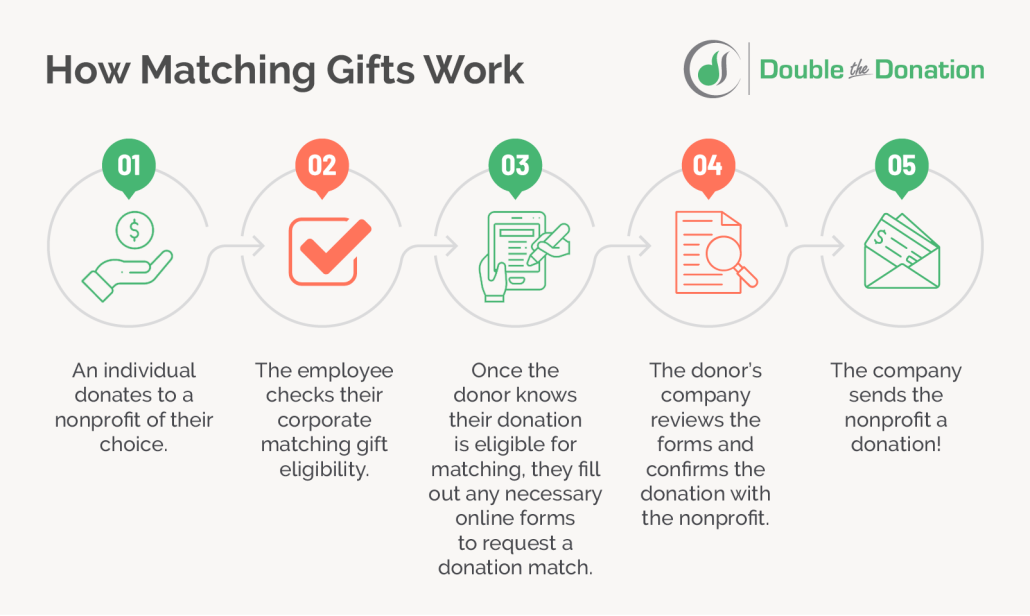Why Company Philanthropy Issues: A Guide to Company Social Obligation
Corporate philanthropy offers as a vital component of company social responsibility. It reflects a business's devotion to social problems and enhances its public picture. Businesses engaging in humanitarian initiatives usually see improved staff member spirits and stronger area ties. However, the real influence of these initiatives can be complicated and complex. Recognizing the nuances of corporate philanthropy can illuminate its significance in today's organization landscape. What are the crucial elements that drive its success?
The Meaning of Business Philanthropy
Corporate philanthropy describes the charitable payments and initiatives taken on by services to sustain social reasons and community growth. This principle encompasses a selection of activities, consisting of economic contributions, employee volunteer programs, and in-kind gifts of services or products. Firms participate in philanthropy to deal with social issues such as education and learning, wellness treatment, environmental sustainability, and hardship relief.
Typically, business philanthropy is structured through official programs or partnerships with nonprofit organizations, allowing services to leverage their sources effectively. These campaigns typically intend to make a favorable effect on the neighborhood while straightening with the business's worths and goal. In addition, business philanthropy mirrors a dedication to corporate social duty, showcasing exactly how organizations can add to society beyond profit generation. By getting involved in humanitarian efforts, firms can play a substantial role in cultivating social change and attending to area demands.
Benefits of Business Philanthropy for Companies
Participating in business philanthropy deals numerous benefits for businesses, enhancing their reputation and promoting stronger community ties. Companies that actively participate in humanitarian initiatives usually experience increased employee morale and commitment. When workers perceive their company as socially liable, they are more probable to really feel happy with their workplace, resulting in higher levels of job satisfaction and retention.
In addition, business philanthropy can produce beneficial networking possibilities. Working together with non-profits and neighborhood organizations allows companies to attach with similar people and groups, possibly bring about collaborations that can benefit both events. Furthermore, organizations participated in philanthropy may locate themselves much more appealing to capitalists and stakeholders who focus on honest practices.
Ultimately, company philanthropy not just sustains societal needs however likewise supplies concrete advantages to organizations, creating a win-win scenario that advertises development and sustainability while contributing positively to the world.
Enhancing Brand Name Loyalty Through Social Responsibility
Enhancing brand commitment through social obligation includes building trust fund with consumers by aligning corporate actions with community values (corporate philanthropy). Business can cultivate much deeper links with community engagement campaigns that reverberate with their target market. Furthermore, genuine brand storytelling can better reinforce loyalty by showcasing genuine commitment to social causes
Building Trust Fund With Action
Building trust fund with action is an effective technique that firms can apply to reinforce brand loyalty and foster much deeper links with customers. When businesses proactively participate in corporate philanthropy, they show a dedication to ethical techniques and social duty. This proactive technique not just enhances their online reputation yet additionally resonates with customers who focus on worths placement. Transparency in philanthropic efforts is essential; business need to properly interact their efforts and the impact they are making. Credibility plays a substantial duty also; consumers are most likely to support brands that truly appreciate societal concerns instead of those that involve in superficial marketing. Ultimately, by focusing on meaningful activities over mere words, companies can support long-lasting count on and loyalty among their customer base.
Community Engagement Initiatives

Genuine Brand Name Narration
Neighborhood interaction efforts typically function as a foundation for genuine brand storytelling, which plays a substantial role in cultivating brand name loyalty. By sharing genuine stories regarding their social duty initiatives, firms can link psychologically with consumers. These stories highlight the brand name's values, mission, and dedication to societal improvement, fostering trust fund and relatability. When customers regard a brand as socially accountable, they are most likely to develop a much deeper affinity and choice for it. Genuine narration likewise encourages transparency, welcoming consumers to involve with the brand on an individual degree. Because of this, organizations not just enhance their reputation however additionally build enduring relationships with their target market, eventually bring about boosted commitment and advocacy in an open market
The Duty of Staff Members in Corporate Philanthropy
Staff members play a necessary duty fit a company's philanthropic initiatives via their engagement and participation. Reliable staff member interaction techniques can enhance volunteerism, resulting in purposeful area influence. As organizations harness the cumulative power and interest of their labor force, they can cultivate a culture of considering that expands past the work environment.
Staff Member Engagement Techniques
Engagement in company philanthropy fosters a sense of purpose that prolongs past mere profit-making. Business can boost employee involvement by implementing different strategies that urge involvement in philanthropic efforts. One efficient approach is to develop a matching gift program, where the firm matches staff member contributions to qualified charities, enhancing their impact. Furthermore, normal communication about kind initiatives can produce understanding and influence staff members to contribute their time and resources. Giving systems for employees to share their charitable rate of interests fosters a sense of ownership and community. Recognizing and compensating employees for their kind contributions can likewise strengthen a culture of offering, inevitably causing a much more involved workforce lined up with the company's social responsibility goals.
Volunteerism and Community Influence
Company philanthropy flourishes when people proactively join volunteerism, straight influencing the areas they serve. Employee involvement in volunteer initiatives not only enhances firm culture but also cultivates a sense of function and link amongst staff. Via volunteering, employees go to these guys establish essential skills, such as teamwork and leadership, which can convert into boosted work performance. In addition, when employees join for area causes, they reinforce their bond with the company, enhancing general spirits and loyalty. Organizations that motivate volunteerism often see a favorable public image, as community interaction shows their dedication to social obligation. Ultimately, the collective influence of worker volunteer efforts can transform communities, addressing pressing social issues while enhancing company worths and goal.

Gauging the Impact of CSR Initiatives
As companies increasingly purchase corporate social duty (CSR) initiatives, recognizing their impact ends up being necessary for evaluating performance and leading future efforts. Determining the impact of CSR requires a multifaceted method, incorporating both measurable and qualitative metrics. Trick performance signs (KPIs) such as area involvement levels, employee complete satisfaction, and ecological enhancements supply useful insights into the end results of CSR programs. Studies and interviews with stakeholders can expose the social adjustment created by these efforts, while information evaluation assists track progression against set objectives.
Additionally, aligning CSR additional reading objectives with business goals enhances accountability. Organizations can utilize structures such as the Global Reporting Initiative or the UN Sustainable Growth Goals to standardize their dimension processes. Eventually, precise evaluation of CSR initiatives not just shows a company's commitment to social obligation however also notifies strategy modifications to make best use of favorable influence, fostering a culture of sustainability and community interaction.
Finest Practices for Applying Reliable CSR Approaches
Carrying out effective CSR methods calls for a clear understanding of a company's values and goals, ensuring placement with stakeholder expectations. Successful companies start by carrying out a thorough evaluation of their social, environmental, and economic influences, permitting them to identify areas for enhancement. Stakeholder interaction is vital; companies need to actively include workers, consumers, and neighborhood article members in the advancement and execution of CSR efforts.
Openness is another best method, as it fosters trust and responsibility. Companies need to interact their CSR goals and development honestly, sharing both challenges and successes. In addition, incorporating CSR right into the core business method boosts its influence, making it an essential part of procedures as opposed to an afterthought. Routine evaluation and adjustment of CSR efforts, notified by stakeholder comments and altering social requirements, warranty significance and efficacy. By sticking to these techniques, organizations can develop meaningful and sustainable CSR methods that resonate with their neighborhoods.
Frequently Asked Concerns
Just How Can Small Companies Take Part in Company Philanthropy?
Tiny businesses can take part in corporate philanthropy by giving away a percent of earnings, funding regional occasions, partnering with nonprofits, supplying worker volunteer days, and participating in community service activities, promoting a favorable effect and boosting their brand reputation.
What Are Typical Misunderstandings Concerning Corporate Philanthropy?
Common mistaken beliefs concerning corporate philanthropy consist of the idea that it's only an advertising and marketing device, that just large firms can participate, and that it lacks genuine effect. Lots of underestimate the worth small services can contribute through significant engagement.
How Do Consumers Perceive Business Taken Part In Philanthropy?
Consumers frequently view companies participated in philanthropy favorably, connecting such initiatives with business obligation, honest behavior, and neighborhood support. This assumption can improve brand name commitment, influence getting choices, and boost overall company reputation in the market.
Are There Tax Obligation Advantages for Businesses Associated With Philanthropy?
Companies entailed in philanthropy often appreciate various tax benefits, such as deductions for charitable contributions. corporate philanthropy. These rewards can improve a firm's financial standing while advertising a favorable public image via their community involvement initiatives
Can Corporate Philanthropy Improve Staff Member Retention Rates?
Corporate philanthropy can enhance staff member retention prices by cultivating a feeling of objective and belonging among personnel. Involved workers, straightened with firm values, are most likely to stay completely satisfied and fully commited within their functions.
Corporate philanthropy serves as a vital part of corporate social responsibility. Company philanthropy refers to the philanthropic contributions and efforts undertaken by services to support social causes and community development. Additionally, company philanthropy shows a dedication to business social duty, showcasing just how organizations can add to society past earnings generation. Engaging in corporate philanthropy deals countless benefits for organizations, boosting their online reputation and promoting stronger neighborhood connections. Consumers frequently view companies involved in philanthropy positively, connecting such efforts with business obligation, ethical actions, and area support.